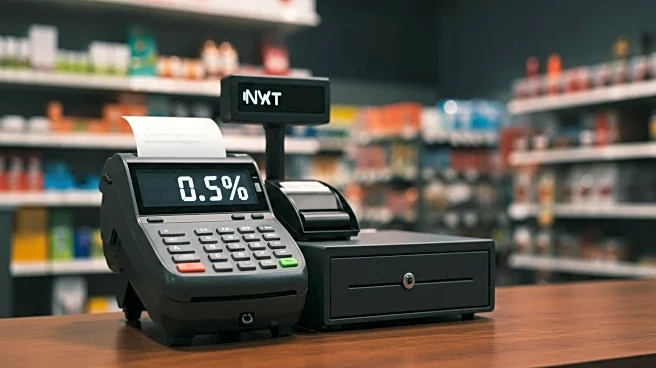What is the story about?
What's Happening?
Retail sales in the United States increased by 0.5% in July, driven largely by a rebound in auto sales, according to the Commerce Department. This rise comes amid concerns over tariffs imposed by President Trump, which have led to price increases and job impacts. The report also revised June's retail sales upward to 0.9%. Auto sales, which have been volatile due to tariffs on foreign-made cars, rose by 1.6%. Other sectors such as clothing stores and online retailers saw gains, while electronics stores and restaurants experienced declines. Analysts suggest that consumers may be accelerating purchases ahead of expected price hikes due to tariffs.
Why It's Important?
The increase in retail sales highlights consumer resilience despite economic uncertainties related to tariffs. This trend suggests that while tariffs may lead to higher prices, consumers are still willing to spend, particularly on discretionary items. The data is crucial for understanding consumer behavior and its impact on the economy, as retail sales are a significant component of economic growth. Businesses may face challenges in absorbing tariff costs, potentially leading to price increases for consumers. The report also indicates potential shifts in consumer spending patterns, with implications for various industries.
What's Next?
Major retailers like Walmart and Target are expected to report their fiscal second-quarter earnings soon, which will provide further insights into consumer behavior and the impact of tariffs. Analysts will be watching to see how much of the tariff costs are being passed on to consumers. Additionally, the Labor Department's report on U.S. hiring suggests a slowdown, which could affect consumer spending in the future. The ongoing trade policies and their effects on the economy will continue to be a focal point for businesses and policymakers.














